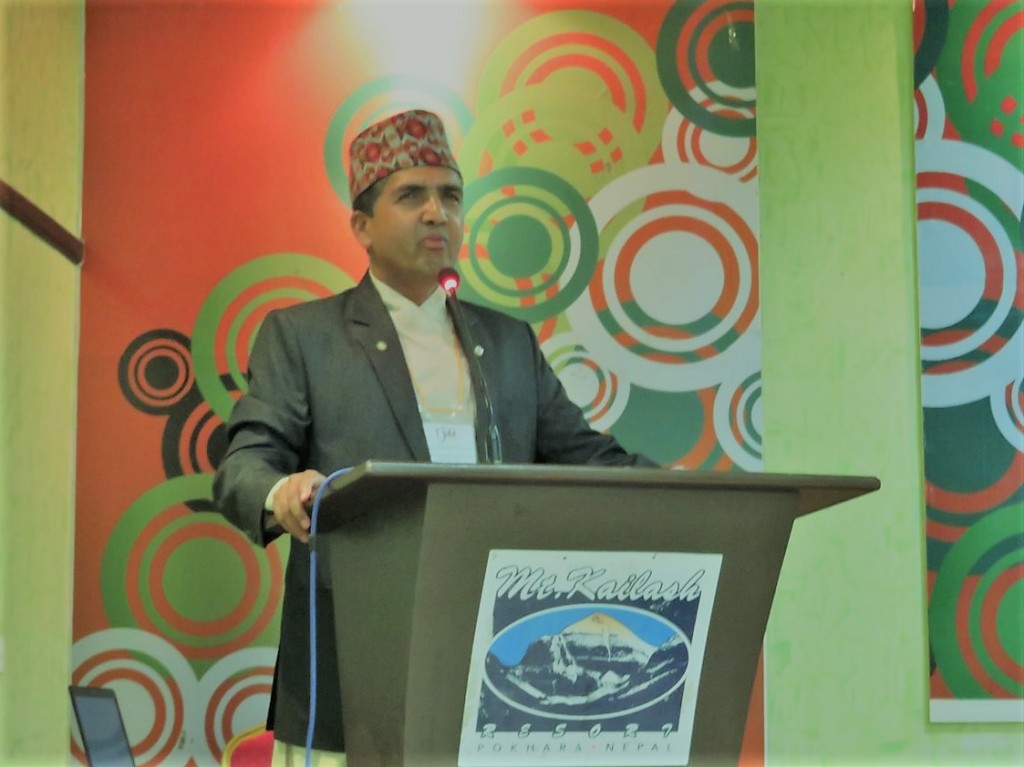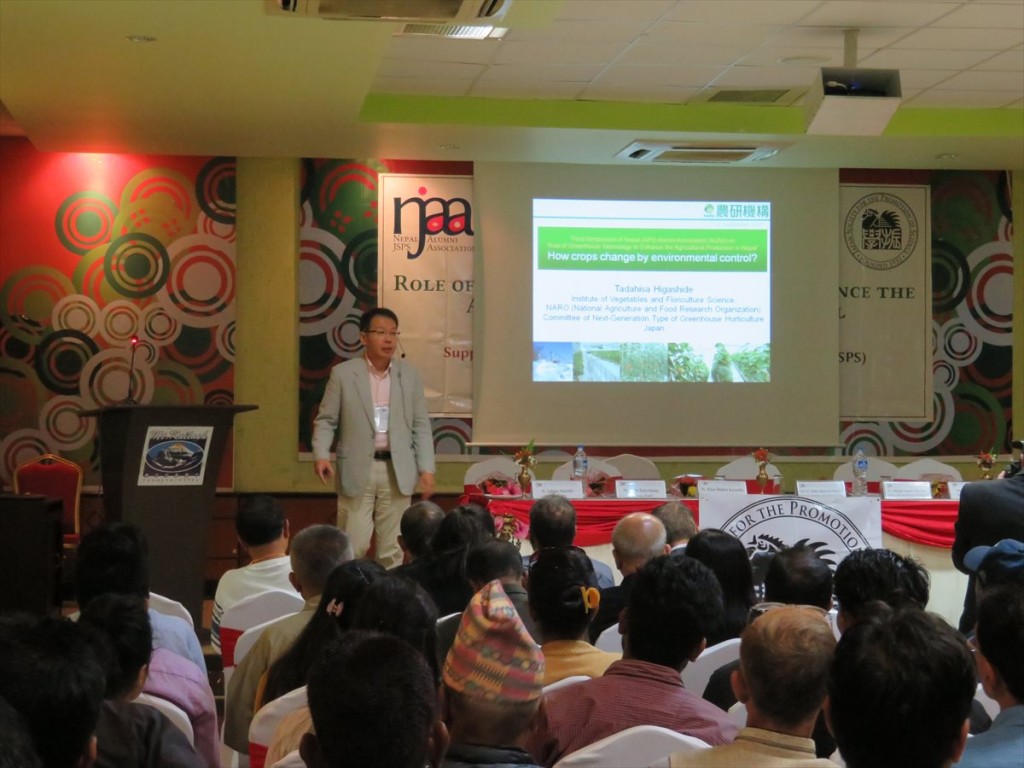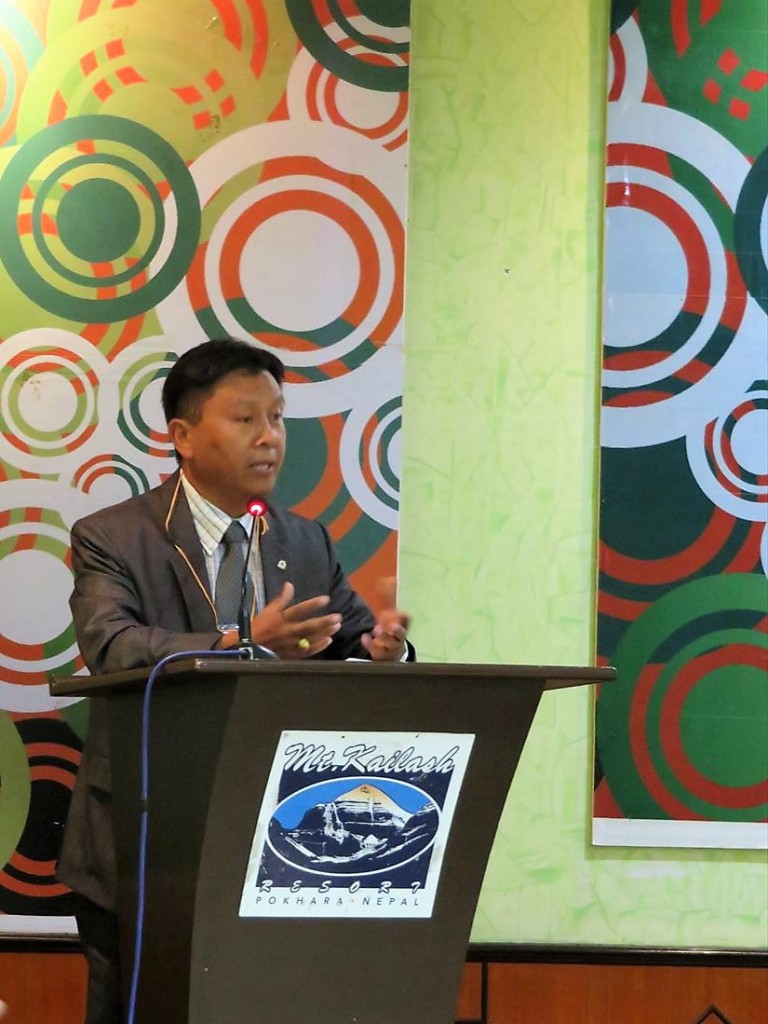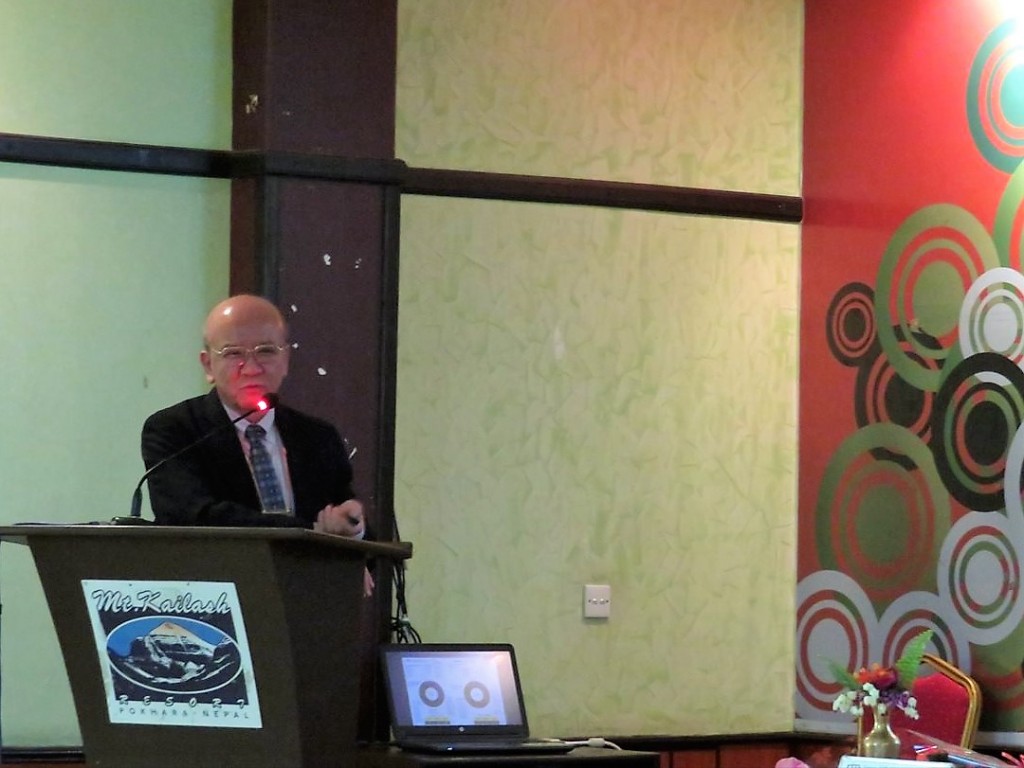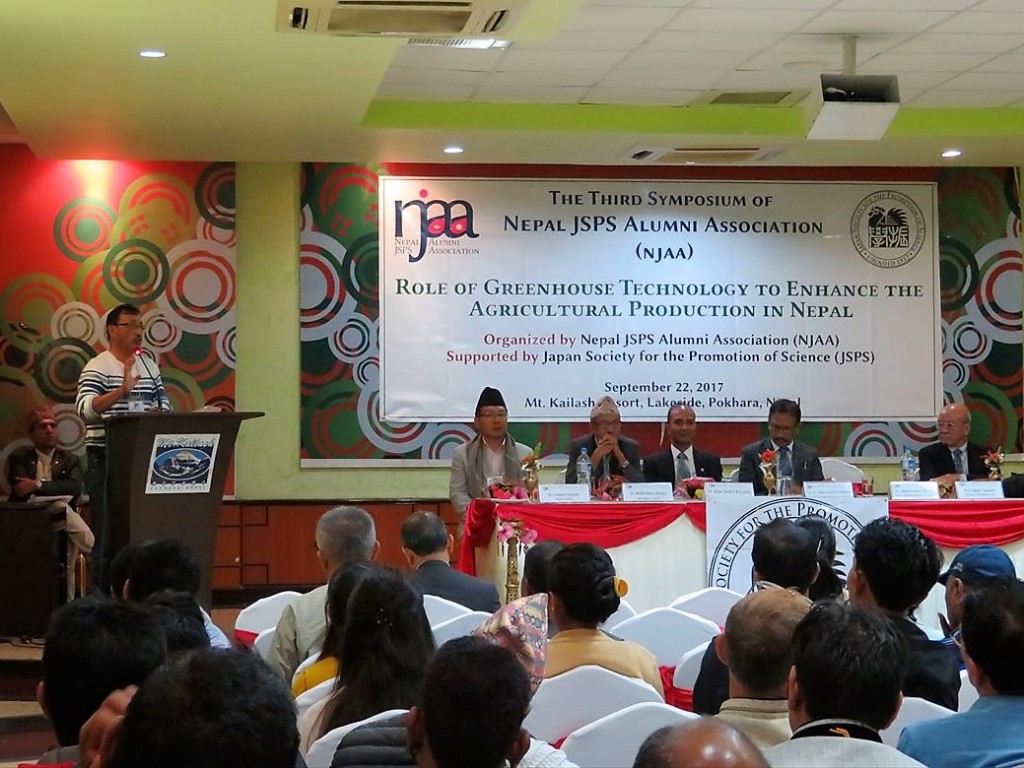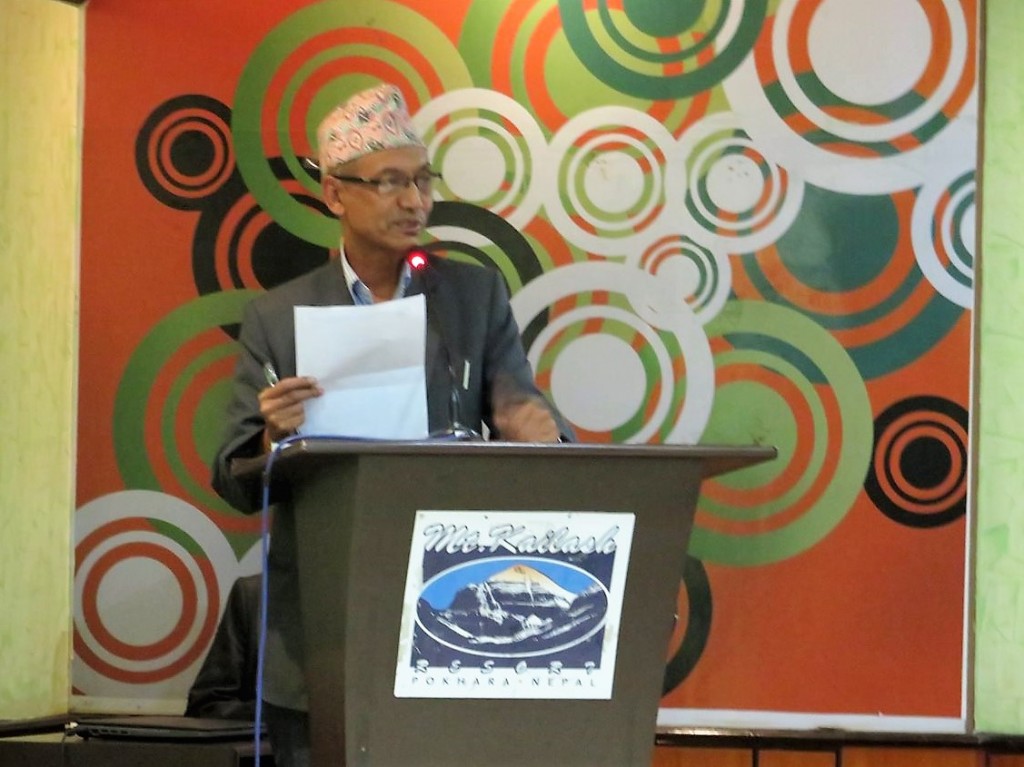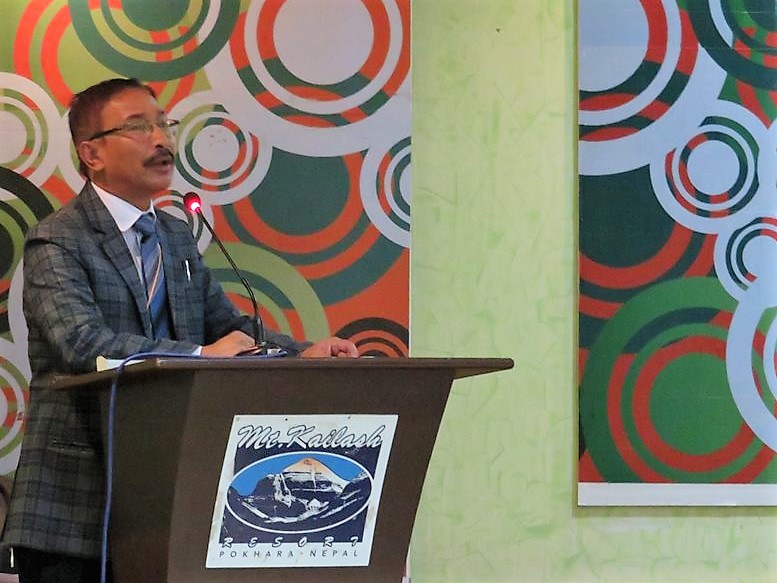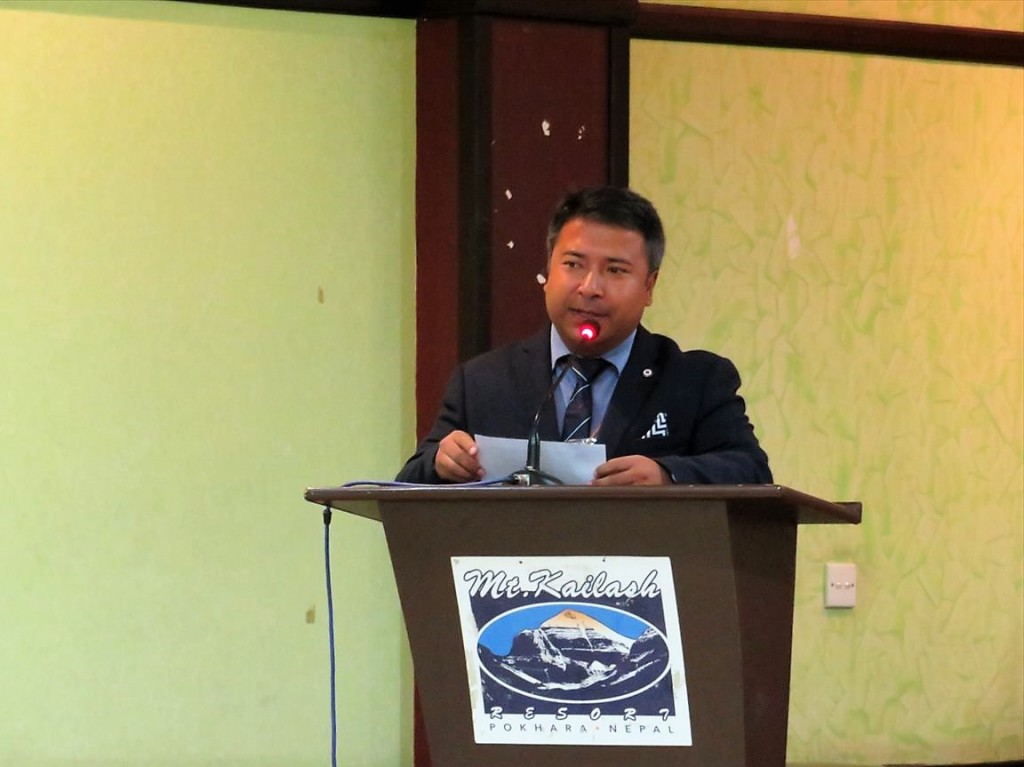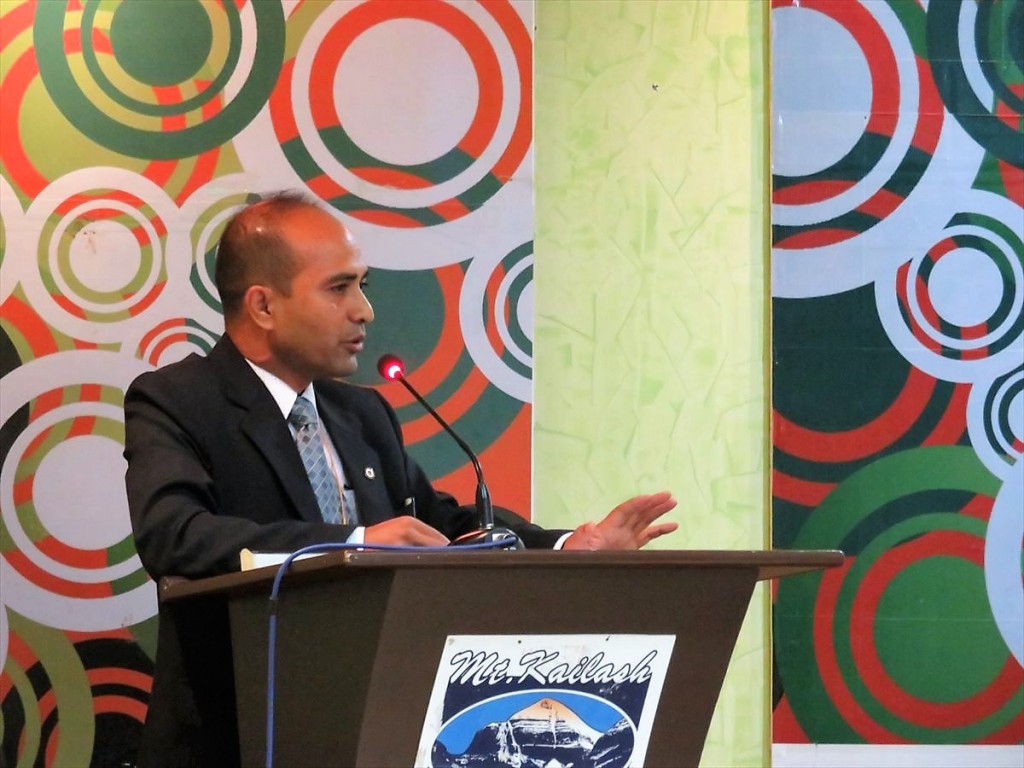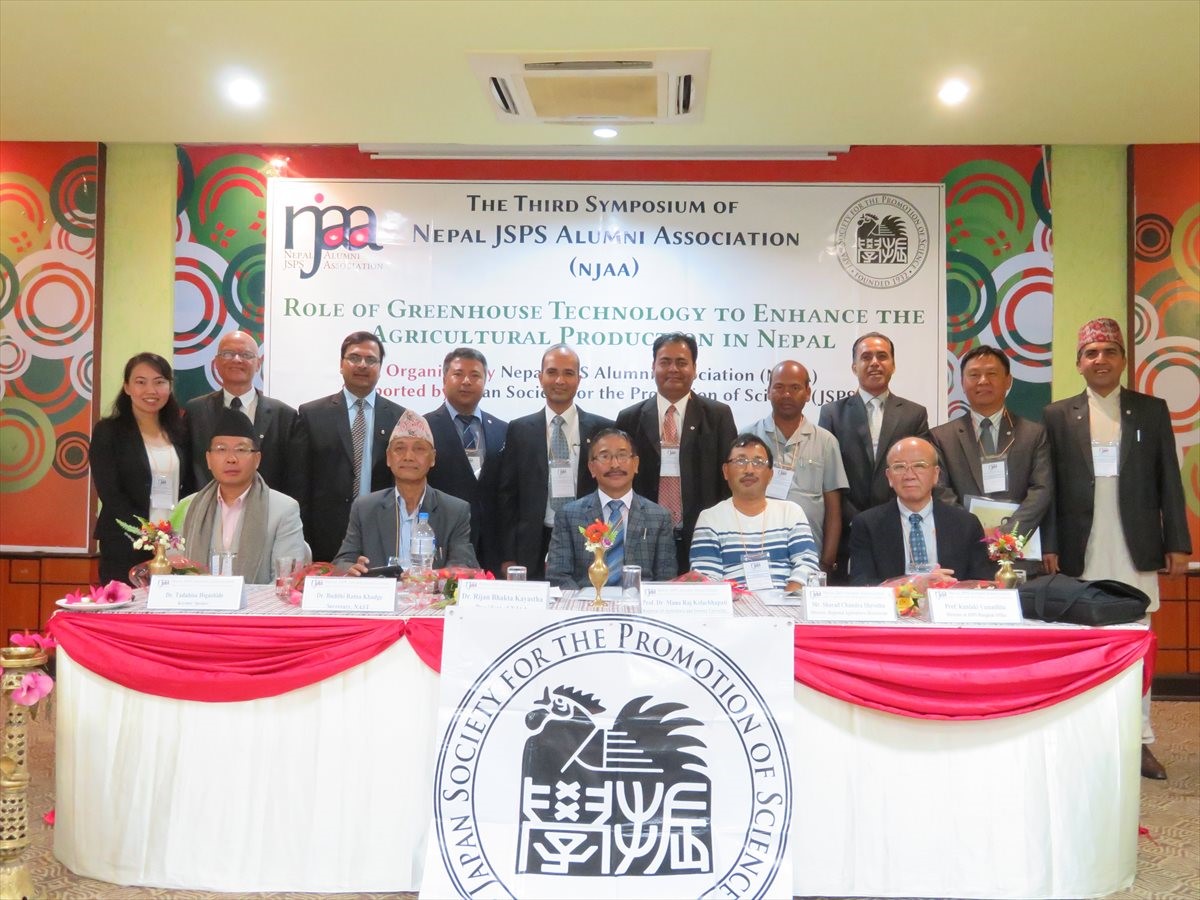On 22 September, Nepal JSPS Alumni Association (NJAA) held the 3rd Symposium “Role of Greenhouse Technology to Enhance the Agricultural Production in Nepal” and its General Assembly in Pokhara, Nepal.
The following 6 distinguished guests were introduced by Dr. Nawa Raj Khatiwada, Executive member of NJAA :
· Prof. Dr. Mana Raj Kolachhapati (Registrar of Agriculture and Forestry University)
· Mr. Sharad Chandra Shrestha (Director, Regional Agriculture Directorate)
· Dr. Buddhi Ratna Khadge (Secretary, Nepal Academy of Science and Technology (NAST))
· Prof. Kuniaki Yamashita (Director, JSPS Bangkok Office)
· Dr. Tadahisa Higashide Unit Leader (Agriculture · Food Industry Research Organization Facility Production Unit)
· Dr. Rijan Bhakta Kayastha (President, NJAA)
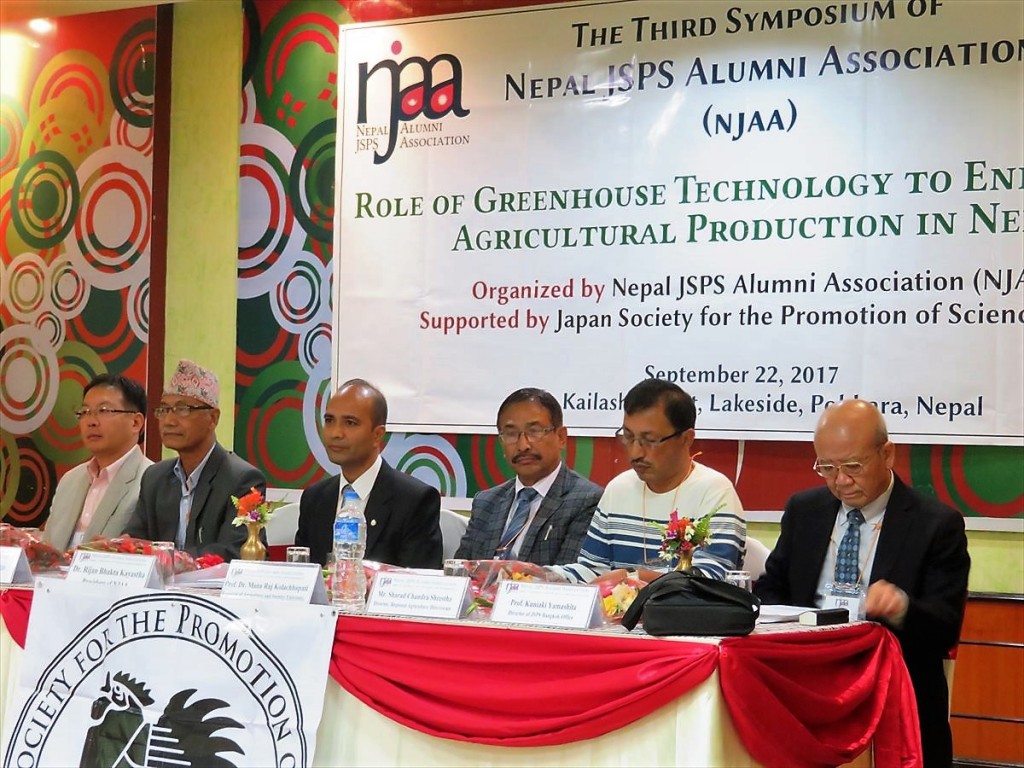
From the left side:Dr. Higaside, Dr. Khadge, Dr. Kayastha, Prof. Dr. Kolachhapati, Mr. Shrestha, Prof. Yamashita
In the Scientific Session, Dr. Ranjan Kumar Dahal, Vice President of NJAA moderated.
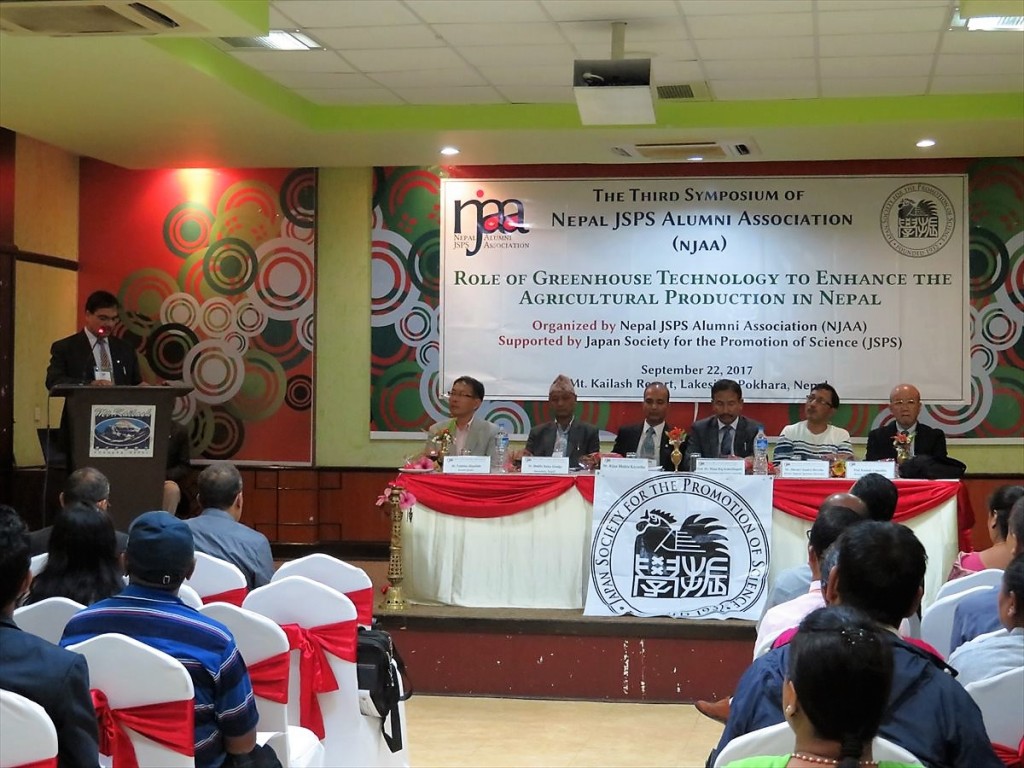
First speaker Dr. Higashide, gave a lecture entitled “How crops change by environmental control?”
He introduced that there were 10 “Next-generation greenhouse horticulture” in Japan, and explained the case of environmental control of tomatoes and cucumbers.
The second speaker, NJAA ‘s Board, Dr. Umed Kumar Pun, gave a lecture entitled “Status and way forward of greenhouse technology for enhancing agriculture production in Nepal”. Dr. Pun introduced the greenhouse production system referring to Gerbera cultivation case.
At a question and answer period, many young researchers and farmers asked a wide range of questions to both Dr. Higashide and Dr. Pun.
And then, the last speakers, Prof. Yamashita Kuniaki introduced JSPS’s collaboration among JSPS alumni associations and its counterpart agencies.
Mr. Sharad Chandra Shrestha, Dr. Buddhi Ratna Khadge, Prof. Dr. Mana Raj Kolachhapati gave a congratulatory speeches respectively.
Dr. Kundan Lal Shrestha, Secretary of NJAA, also delivered the words of thanks to the speakers, participants and supporting staff.
The symposium ended with a greeting by President Dr. Kayastha.
The symposium was successfully concluded in being vigorous, with more than 100 participants including graduate students, young researchers and farmers of local community. Moreover, young researchers who wish to do research in Japan asked a lot of questions during the reception as well, and we could interact with Nepalese researchers.








